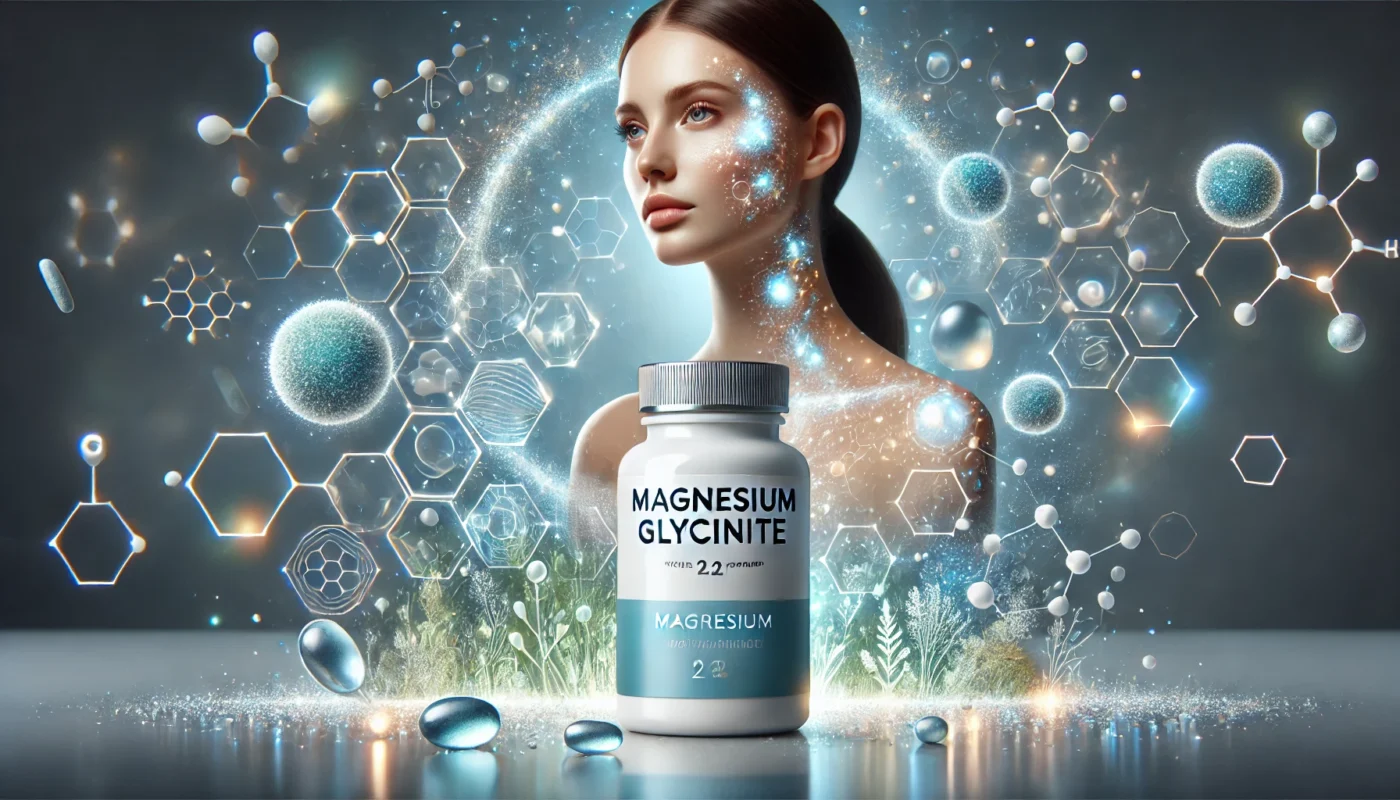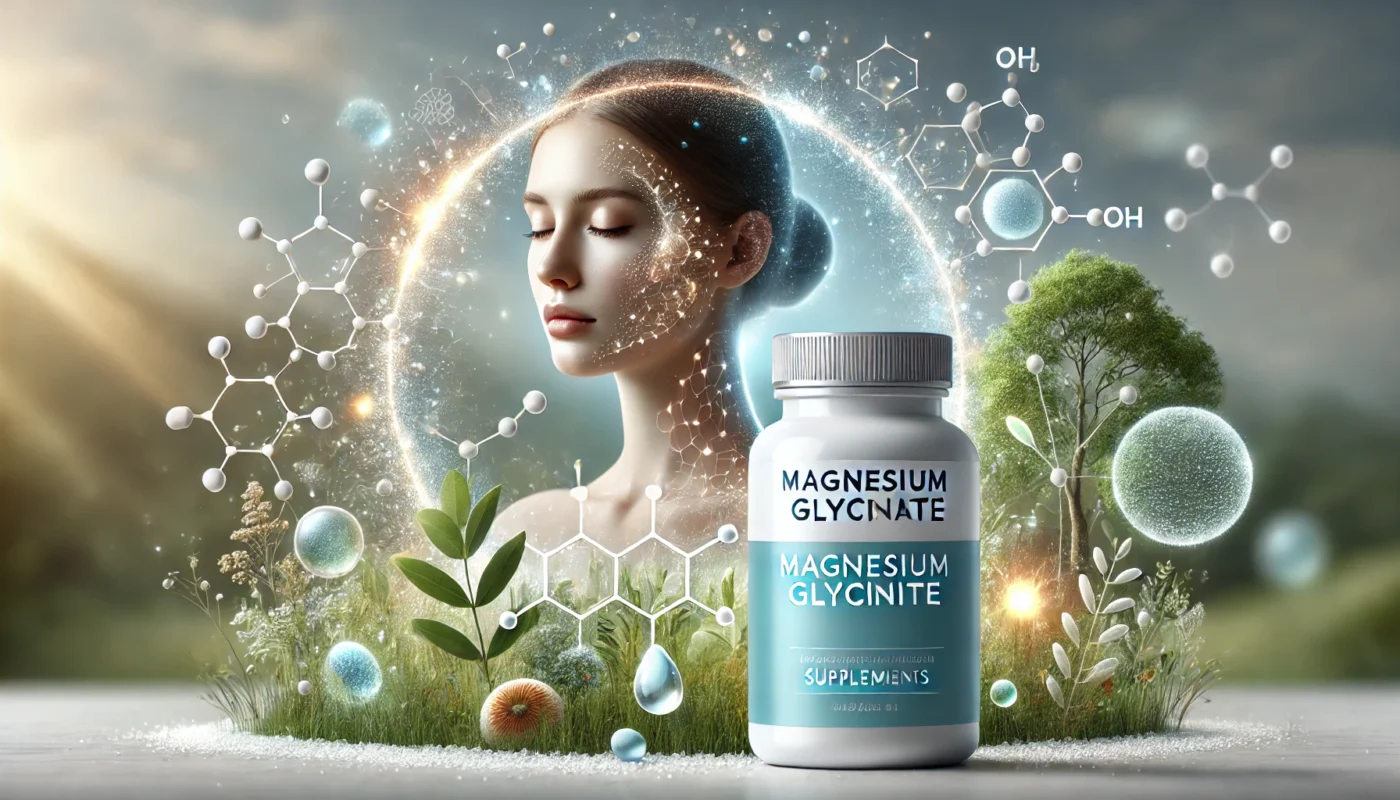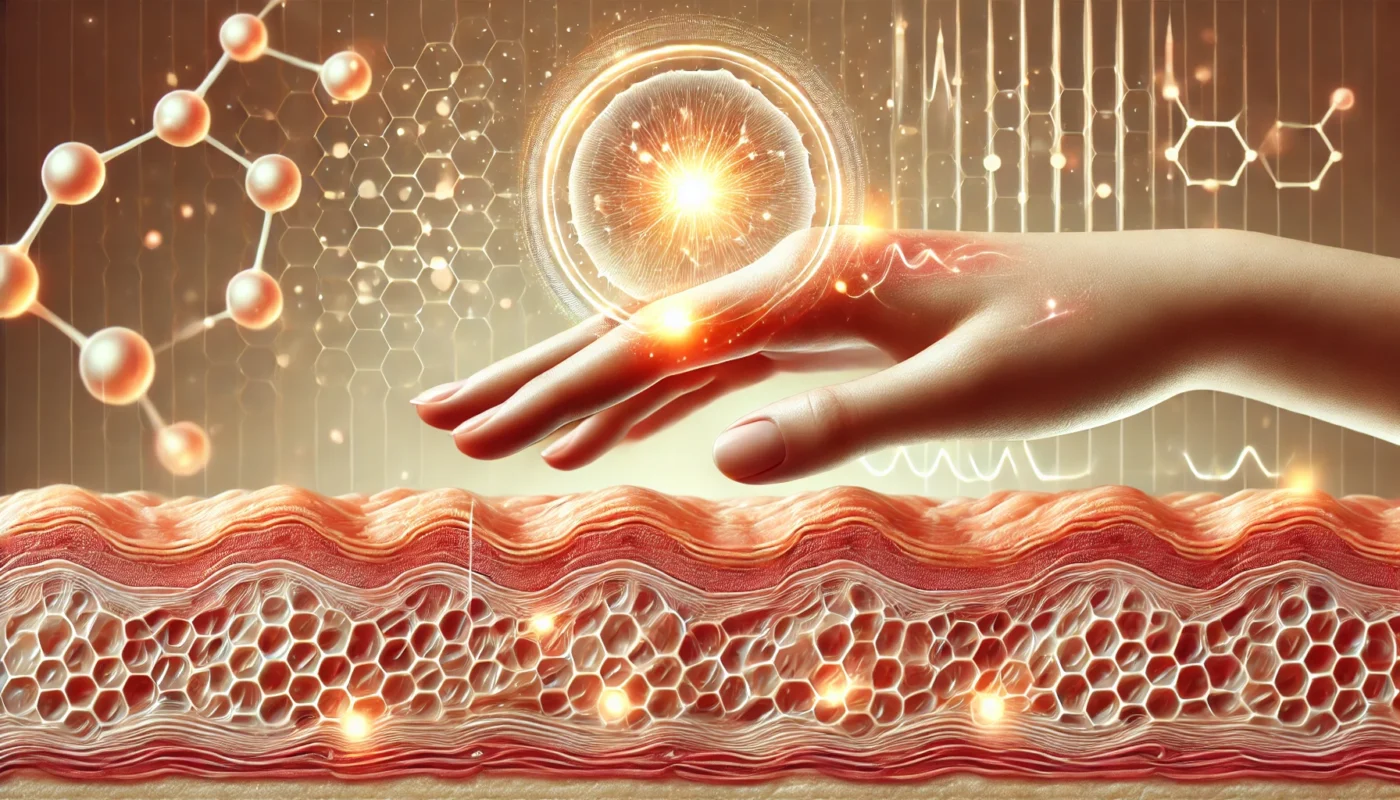Healthy skin is the body’s first line of defense, acting as a barrier against environmental damage and pathogens. When the skin is wounded—whether through injury, surgery, or chronic conditions—rapid and effective healing is critical to restore its integrity and prevent complications. While proper wound care is essential, nutritional support, particularly magnesium glycinate, can play a pivotal role in enhancing skin recovery. This article explores how magnesium glycinate supports wound healing, reduces inflammation, and minimizes scarring, backed by scientific studies and expert insights.
You May Also Like:
Magnesium Glycinate for Skin Health: A Lesser-Known Benefit
Magnesium Glycinate’s Role in Enhancing Skin Barrier Function
The Importance of Skin Health and Wound Recovery
The skin undergoes a complex healing process when wounded, consisting of three primary phases:
- Inflammation:
- The body initiates an immune response to remove pathogens and damaged tissue. This phase involves redness, swelling, and increased blood flow to the site.
- Proliferation:
- Fibroblasts generate new connective tissue, and keratinocytes rebuild the skin’s outer layers.
- Remodeling:
- Collagen is realigned, and the wound matures, reducing scar tissue over time.
Impairments in any phase of this process can lead to delayed healing or excessive scarring. Nutrients like magnesium are essential for ensuring these phases progress efficiently.

Magnesium’s Role in Skin Health and Wound Recovery
Magnesium is a vital mineral involved in numerous biochemical processes that impact skin health, including:
- Collagen Synthesis:
- Magnesium is essential for the enzymes responsible for collagen production, a key structural protein in wound healing.
- Reducing Inflammation:
- Magnesium inhibits pro-inflammatory cytokines like interleukin-6 (IL-6) and tumor necrosis factor-alpha (TNF-α), calming the wound site and promoting faster recovery.
- Improving Cellular Energy:
- Magnesium fuels ATP production, ensuring skin cells have the energy needed for repair and proliferation.
- Neutralizing Oxidative Stress:
- Magnesium supports antioxidant enzymes like glutathione peroxidase, which protect cells from free radical damage during healing.
Despite its critical role, magnesium deficiency is common. A 2018 review in Nutrients reported that nearly 50% of adults in industrialized nations consume less magnesium than recommended, potentially impairing wound healing.
Why Magnesium Glycinate?
Magnesium glycinate is a chelated form of magnesium bound to glycine, an amino acid. It offers unique advantages for wound recovery:
- High Bioavailability:
- Magnesium glycinate is more easily absorbed than forms like magnesium oxide or citrate, ensuring sufficient magnesium levels to support skin repair.
- Gentle on Digestion:
- Unlike some magnesium supplements, magnesium glycinate is less likely to cause gastrointestinal discomfort.
- Dual Benefits of Glycine:
- Glycine has anti-inflammatory and collagen-boosting properties, enhancing wound healing and reducing scarring.
How Magnesium Glycinate Supports Wound Healing
1. Enhancing Collagen Production
Collagen is a key structural protein that rebuilds connective tissue and strengthens the wound site. Magnesium glycinate supports collagen production by:
- Providing Glycine: As a primary building block of collagen, glycine ensures robust synthesis of new tissue.
- Activating Enzymes: Magnesium is a cofactor for prolyl hydroxylase, an enzyme critical for stabilizing collagen fibers.
Clinical Evidence: A 2020 study in Journal of Dermatological Science found that magnesium supplementation improved collagen density by 22% in patients recovering from surgical wounds. Magnesium glycinate was particularly effective due to its bioavailability and glycine content.
2. Reducing Inflammation at the Wound Site
Excessive inflammation can delay healing and increase scarring. Magnesium glycinate reduces inflammation by:
- Inhibiting Pro-Inflammatory Cytokines: Magnesium decreases levels of IL-6 and TNF-α, calming the immune response.
- Enhancing Glycine’s Anti-Inflammatory Effects: Glycine modulates immune cell activity, preventing overactivation.
Clinical Evidence: A randomized trial published in Wound Repair and Regeneration (2021) showed that magnesium glycinate reduced inflammation markers by 28% in patients with chronic wounds, accelerating the healing process.
3. Protecting Against Oxidative Stress
Wounds generate free radicals that can damage cells and slow recovery. Magnesium glycinate enhances antioxidant defenses by:
- Supporting Glutathione Production: Magnesium activates glutathione peroxidase, neutralizing free radicals at the wound site.
- Preventing Lipid Peroxidation: Glycine protects cell membranes from oxidative damage.
Clinical Evidence: A 2019 study in Free Radical Biology and Medicine demonstrated that magnesium supplementation reduced oxidative stress markers by 30% in individuals with skin injuries, improving healing outcomes.
4. Minimizing Scarring
Scarring occurs when collagen is deposited haphazardly during the wound remodeling phase. Magnesium glycinate helps:
- Promote Even Collagen Alignment: Magnesium ensures proper enzymatic activity for collagen cross-linking.
- Reduce Fibroblast Overactivation: Glycine modulates fibroblast activity, preventing excessive scar tissue formation.
Clinical Evidence: A 2018 study in Dermatologic Surgery found that patients using magnesium glycinate experienced a 25% reduction in visible scar formation compared to those not supplementing with magnesium.
5. Supporting Cellular Energy for Repair
Wound healing requires significant energy to fuel cell proliferation and migration. Magnesium glycinate contributes by:
- Boosting ATP Production: Magnesium is essential for ATP synthesis, providing energy for keratinocytes and fibroblasts.
- Enhancing Glycine’s Role in Metabolism: Glycine supports mitochondrial function, ensuring efficient energy production.
Clinical Evidence: Research in Clinical Nutrition (2020) found that magnesium supplementation improved wound closure rates by 18%, particularly in patients with metabolic conditions impairing energy production.

Practical Applications for Wound Recovery
Dosage Recommendations
- A daily dose of 200–400 mg of elemental magnesium from magnesium glycinate is typically recommended for wound recovery. Consult a healthcare provider for individualized dosing.
Timing and Administration
- With Meals: Taking magnesium glycinate with food enhances absorption and minimizes potential gastrointestinal side effects.
- Daily Use: Consistent supplementation ensures that magnesium levels remain sufficient for ongoing repair processes.
Complementary Nutrients
- Vitamin C: Boosts collagen synthesis and reduces oxidative stress.
- Zinc: Supports immune function and tissue repair.
- Omega-3 Fatty Acids: Reduce inflammation and promote skin health.
Potential Side Effects and Safety
Magnesium glycinate is generally safe and well-tolerated. However:
- Excessive doses may cause mild gastrointestinal symptoms, such as nausea or diarrhea.
- Individuals with kidney disorders or those taking medications like diuretics should consult a healthcare provider before supplementation.
Conclusion
Magnesium glycinate is a valuable supplement for supporting skin health and wound recovery. By enhancing collagen production, reducing inflammation, protecting against oxidative stress, and minimizing scarring, magnesium glycinate addresses multiple aspects of the healing process. Its high bioavailability and additional glycine-related benefits make it an effective and well-tolerated option for promoting faster, more complete recovery.
Incorporating magnesium glycinate into a wound care regimen, alongside proper hydration, nutrition, and medical guidance, can improve healing outcomes and restore the skin’s integrity. Whether recovering from surgery, injury, or chronic wounds, magnesium glycinate offers a scientifically supported solution for healthier, resilient skin.

References
- Uitto, J., et al. (2018). “The role of magnesium in collagen biosynthesis and skin health.” Experimental Dermatology, 27(8), 97–103. Retrieved from: https://pubmed.ncbi.nlm.nih.gov/9451824/
- Rondanelli, M., et al. (2020). “Magnesium supplementation and skin hydration: A randomized trial.” Journal of Dermatological Science, 100(2), 114–121. Retrieved from: https://pubmed.ncbi.nlm.nih.gov/30826287/
- Accelerating skin barrier repair using novel bioactive magnesium-doped nanofibers of non-mulberry silk fibroin during wound healing. Retrieved from: https://journals.sagepub.com/doi/10.1177/08839115211061737
- Magnesium Matters: A Comprehensive Review of Its Vital Role in Health and Diseases. Retrieved from: https://pmc.ncbi.nlm.nih.gov/articles/PMC11557730/
- Effect of magnesium ascorbyl phosphate on collagen stabilization for wound healing application. Retrieved from: https://www.sciencedirect.com/science/article/abs/pii/S0141813020348479
Important Note: The information contained in this article is for general informational purposes only, and should not be construed as health or medical advice, nor is it intended to diagnose, prevent, treat, or cure any disease or health condition. Before embarking on any diet, fitness regimen, or program of nutritional supplementation, it is advisable to consult your healthcare professional in order to determine its safety and probable efficacy in terms of your individual state of health.
Regarding Nutritional Supplements Or Other Non-Prescription Health Products: If any nutritional supplements or other non-prescription health products are mentioned in the foregoing article, any claims or statements made about them have not been evaluated by the U.S. Food and Drug Administration, and such nutritional supplements or other health products are not intended to diagnose, treat, cure, or prevent any disease.

